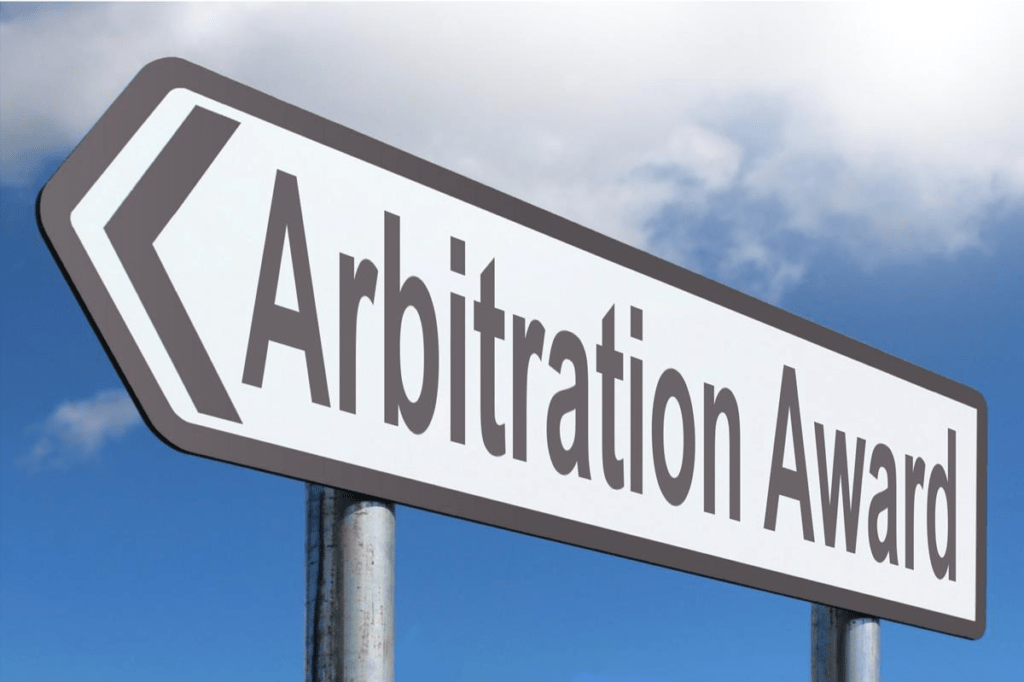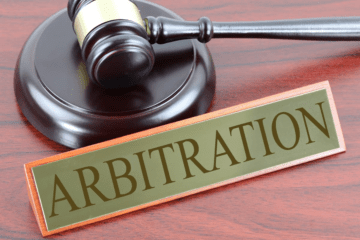
This article is written by Kushal of Chanderprabhu Jain College of Higher Studies and School of Law, New Delhi, an intern under Legal Vidhiya
ABSTRACT
This section sets out considerations of the ability of arbitral tribunals to exercise their statutory and regulatory powers to grant provisional measures (for example, as unilateral preliminary orders) by arbitral tribunals and courts. This article also contains the provisions given under Arbitration and Conciliation Act, 1996 to appoint an arbitrator with the consent of both the parties. Functions and duties of an arbitral tribunal along with the provisions for the removal of the arbitrators are mentioned as per given sections under the act. The subject of the arbitral tribunal’s jurisdiction brings up various issues, including who gets to decide if the panel has the authority to decide on its own jurisdiction and when, if at all, court intervention should take place throughout the arbitral procedure. Courts have approached these issues in different ways. In order to give the arbitral tribunal priority in making decisions within its own jurisdiction, this article provides a comparative examination of jurisdictional approaches.
KEYWORDS
Arbitration, arbitral tribunal, act, appointment, removal, jurisdiction, decision, award, dispute, court.
INTRODUCTION
In the business world, conflicts occur frequently between parties, and in today’s fast-paced business world, time is as valuable as money. Both parties will suffer if the dispute falls victim to a long and difficult court battle. The solution of this battle is the use of alternative dispute resolution (ADR), which is simple and easy to solve the problem of both parties. Arbitration is an important form of ADR that dates back to the panchayat days when elders resolved disputes between people, often based on principles of justice. Simply put, arbitration is a way to resolve disputes between parties without going to court.
Subject to specific limitations, the parties to an arbitration agreement may select the “seat” for their arbitration. The rules governing such a seat have significant practical ramifications since they establish the laws that govern arbitrations held there and have an impact on the legality of awards that are evaluated in light of the fundamental legal principles of the nation in which they were produced. In any arbitration, parties may ask the court for help in obtaining a temporary injunction, the creation of an arbitral tribunal, instructions on how to gather evidence, and, in the end, the ability to challenge an arbitral verdict in court. The law governing the arbitration and the courts with supervisory jurisdiction over an arbitration process are inextricably linked to the arbitration’s seat.
ARBITRATION
Arbitration is the settlement of disputes outside of court by one or more (odd number) arbitrators appointed by both parties. According to [1]Section 2(1)(a) of the Arbitration and Conciliation Act, 1996 “Arbitration means any arbitration whether or not administered by a permanent arbitral institution”. In other words, in India, all forms of arbitration, irrespective of their nature, are recognized and such decisions are taken in the context of the Arbitration and Conciliation Act, 1996. The simple test involves simple rules of evidence and lack of discovery. Judicial proceedings are generally not public records. An arbitration award is binding on both parties, just like a court decision or order.
WHAT IS AN ARBITRAL TRIBUNAL
When a commercial dispute arises between two or more parties and the parties choose to resolve the dispute through arbitration, a tribunal must be established. It consists of one or more arbitrators who decide and resolve the dispute and render the decision. The Arbitration Council of India has laid down various rules called “Arbitration Rules” that the arbitrators as well as the parties participating in the arbitration must follow. Rule 2 of these regulations defines an arbitration court as “an arbitrator or arbitrator appointed to decide the dispute or difference”. [2]Section 2(d) of the Act also defines arbitration as a sole arbitrator or a panel of arbitrators.
COMPOSITION OF ARBITRAL TRIBUNAL
Chapter 3 of the Act, discusses the terms of the arbitral tribunal.
The provisions discussed in Chapter 3 are as follows:
- Number of judges
- Appointment
- Power of Central Government to change the schedule
- Grounds for appointment of arbitrator
- Inability or Impossibility of the arbitrator to Serve
- Termination of Appointment and Replacement of arbitrators
The number of arbitrators must be odd. It helps to determine the majority of the tribunal and avoid any inconsistency in this regard.
APPOINTMENT
Parties are generally free to determine their own selection of arbitrators, including the process for selecting the arbitrator or tribunal president. If the parties refuse to appoint an arbitrator, the relevant law system will provide for a default-selection process. In general, the appointment of an arbitrator is usually done as follows:
If the arbitral tribunal has an arbitrator, the party must attend the arbitrator within 28 days after service of a request in writing by either party to do so.
If there are three arbitrators in the tribunal:
- The parties must select the arbitrator within 14 days after notification of the written request by either party, and
- the two so appointed shall forthwith appoint a third arbitrator as the chairperson of the tribunal.
REMOVAL OF ARBITRATORS
[3]Section 12(3) deals with the provisions relating to the removal of arbitrators. According to section 12(3), a removal case may be filed against the arbitrator if there are circumstances indicating that the person concerned is related to the complaining parties or is involved in the complaint and cannot participate fairly in the case. Additionally, if there are special circumstances where the arbitrator cannot meet the needs of the case, the case may remain and a new arbitrator may be appointed. An arbitrator can also be dismissed if he/she is held liable for any kind of misconduct during the pendency of the case.
JURISDICTION OF ARBITRAL TRIBUNAL
The jurisdiction of the arbitral tribunal is stated in [4]section 4 of the Arbitration and Conciliation Act. After reading [5]section 16 of the Act, it is clear that the jurisdiction of the arbitral tribunal is to be decided by the agreement itself and the parties may choose to determine the conduct of the tribunal.
Determining the Jurisdiction
According to the kompetenz-kompetenz principle, [6]Section 16(1) of the Act provides that the tribunal may decide on its own jurisdiction, including relevant jurisdiction. Or if there is objection to the validity of the arbitration agreement.
When the arbitration agreement or arbitration clause is an integral part of the main contract, it is considered an independent contract from the main contract. Just because the court finds the main contract invalid does not mean that the arbitration is invalid (i.e. according to law).
Thus, the Arbitral Tribunal may very well exercise its jurisdiction even if the main contract is void,
POWER TO AWARD INTERIM MEASURES
[7]Section 17 of the Act provides that the arbitral tribunal has the power to award interim measures if the parties to the dispute make the same request to the arbitral tribunal. Interim measures that may be ordered by the arbitral tribunal include:
- Preservation, temporary maintenance or sale of a property that is the subject matter of an agreement
- Proper disposal of money in dispute judicial
- Injunction or appointment of receiver
- Other temporary protection that the arbitral tribunal deems appropriate.
Parties do not have to go through the arduous process of seeking interim relief from the court, making it easier for both parties to opt for arbitration and adding to the beauty of adjudication in India.
FUNCTIONS OF ARBITRAL TRIBUNALS
- Determining the Time and Place of Arbitration
It is the duty of the tribunal to determine the place and time of arbitration for the purpose of convenience and agreement between the parties to the dispute. However, after the time and place are determined, the parties must attend the proceedings in person, otherwise the arbitral tribunal may decide unilaterally (ex parte).
- To determine arbitration-related costs
It is the duty of the arbitral tribunal to determine liability for arbitration costs and then decide the matter if there is good reason to do so.
- To manage the investigation
This is one of the most important tasks of the tribunal. The arbitral tribunal must examine all the evidence and witnesses to determine the situation and then state its work and make its decision accordingly.
- Maintaining the confidentiality of the case
The arbitral tribunal must keep all facts confidential to preserve the integrity of the trust.
But at the same time, according to [8]Section 12 of the Act, they are required to disclose certain facts to both parties to avoid favouritism when it comes time for an arbitral award.
- Decisions on Procedure
According to [9]Section 19 Act, arbitration is not subject to any code of procedure. The arbitral organization responsible for constituting the arbitral tribunal for a particular arbitration case determines the rules for the conduct of the arbitration. Many of these rules are defined in advance by the organization, and some are defined during the process. These must comply with other laws of the country.
- Duty to review or revise the decision
According to [10]Section 33 Act, the arbitral tribunal has the duty to review or interpret the decision given by the tribunal assigned within 30 days from the date on which the decision was made. This can be done in the following two cases:
- One party, with notice to the other party, may request the tribunal to correct any spelling, calculation, clerical errors or other errors of a similar nature;
- A party may request an arbitration court after giving notice to the other party to redefine part of the award.
According to this section, the arbitral tribunal may correct the error in the decision. Submit the application voluntarily within thirty days from the date of receipt of the arbitration award.
ARBITRATION LAW APPLICABLE IN INDIA
As far as the judiciary in India is concerned, the Arbitration and Conciliation Act, 1996 is the first law to regulate the arbitration in India. Moreover, the entire process needs to be according to the fundamental principles and laws of India along with the Constitution.
While deciding the dispute, the arbitral tribunal must comply with these rules before declaring arbitration
In India, the Arbitration Act, 1908 and the Arbitration and Conciliation Act, 1996 (named after the United Nations International Trade (Model Law) Commission) determine the rules and regulations on which the arbitral tribunal will decide during the arbitration.
RELEVANT CASES
- Is the Court’s exercise of jurisdiction under [11]Section 17 of the A&C Act subject to the provisions of the Criminal Code?
[12]Gainwell Commosales v. Minsol Limited
Calcutta High Court relied on Essar House (supra) in the context of Section 17, the Court held that the Court is not limited to the CPC procedure. The court said that after the amendment in 2019, the resources of both of the sections were similar and equal.
- Can an order passed by a court or tribunal be revised under Section 17 of the A&C Act?
[13]Genestore India v. Vineet Singh
The Delhi High Court said that the order under Section 17 of the Act is an interim relief and an order passed by the court could be replaced if needed. Examining such plea cannot be said to be an exercise of power to review.
- Can the arbitral tribunal allow a third party to evaluate the arbitral award?
[14]Usha Martin v. Eastern Gases
The Calcutta High Court said that the arbitrator cannot delegate the duty of assessing damages to a third party. It is suggested that the judge may ask for help from an accountant to prove the claim. However, it is not possible to leave all the numbers calculated and ask the award holder to obtain the numbers from the certified public accountant and tell the debtor to pay this amount.
- What is the impact of the courts in appeals under Section 37 of the Law on Judgments and Decisions, reviewing decisions, waiving or rejecting the granting of the award?
[15]Konkan Railway Corporation Limited V. Chenab Bridge Project Undertaking (Supreme Court of India)
The Court clearly stated that the jurisdiction given under Section 37 of the Act is the same as under Section 34 of the Law. The scope of the Court’s intervention in an appeal under Section 37 is limited and its substance is the same as an appeal under Section 34.
The court should not interfere with judicial decisions. The possibility that the facts or interpretation of the contract may be different is not a basis for reversing the arbitration award.
The court ruled that both the tribunal and the single judge in this case exercised their discretion and that their decisions should not deem it unfair or unlawful. Therefore, the Division Bench should not interfere with the orders of the tribunal.
Accordingly, the court accepted the appeal, reversed the decision of the Division Bench, and reinstated the judgement of the Single Judge.
CONCLUSION
Arbitration has proven to be very suitable in the national and international arena, as the delay in the delivery of assistance is a big problem in the process in the courts and the third party arbitration process turned out to be very easy. Nowadays, most public problems are solved by making decisions in line with the agreement and opinion of both parties, which helps to solve the problems in a better way.
Rules regarding dispute resolution have evolved particularly in India. New organizations are also offering services to India, which can help in removing the burden of the courts in the coming years.
We hope the problem will be solved, things will get better over time and the justice system will become better and more effective in the process.
REFERENCES
- Blog.ipleaders,https://blog.ipleaders.in/all-about-the-arbitral-tribunal/#Introduction (visited on 2nd February 2024)
- Amlegals , https://amlegals.com/jurisdiction-of-arbitral-tribunals/# (visited on 2nd February 2024)
- Barandbench.com, https://www.barandbench.com/columns/30-important-judgments-on-arbitration-by-indian-courts-june-december-2022 (visited on 2nd February 2024)
- Singhanialaw, https://singhanialaw.com/insightful-exploration-into-recent-arbitration-cases-in-india-sep-oct-2023/ (visited on 2nd February 2024)
- Elgaronline, https://www.elgaronline.com/display/book/9781788110341/book-part-9781788110341-31.xml (visited on 2nd February 2024)
- Via Mediation and Arbitration Centre, https://viamediationcentre.org/readnews/OTMw/ARBITRAL-TRIBUNAL (visited on 2nd February 2024)
[1] Arbitration and Conciliation Act, 1996, § 2, cl. 1, No. 26, Acts of Parliament, 1996 (India).
[2] Arbitration and Conciliation Act, 1996, § 2, cl. d, No. 26, Acts of Parliament, 1996 (India).
[3] Arbitration and Conciliation Act, 1996, § 12, cl. 3, No. 26, Acts of Parliament, 1996 (India).
[4] Arbitration and Conciliation Act, 1996, § 4, No. 26, Acts of Parliament, 1996 (India).
[5] Arbitration and Conciliation Act, 1996, § 16, No. 26, Acts of Parliament, 1996 (India).
[6] Arbitration and Conciliation Act, 1996, § 16, Cl. 1, No. 26, Acts of Parliament, 1996 (India).
[7] Arbitration and Conciliation Act, 1996, § 17, No. 26, Acts of Parliament, 1996 (India).
[8] Arbitration and Conciliation Act, 1996, § 12, No. 26, Acts of Parliament, 1996 (India).
[9] Arbitration and Conciliation Act, 1996, § 19, No. 26, Acts of Parliament, 1996 (India).
[10] Arbitration and Conciliation Act, 1996, § 33, No. 26, Acts of Parliament, 1996 (India).
[11] Arbitration and Conciliation Act, 1996, § 17, No. 26, Acts of Parliament, 1996 (India).
[12] Gainwell Commosales Private Limited vs. Minsol Limited, AIR 2022, CALHC 1784/2022.
[13] Genestore India v. Vineet Singh, AIR 2021, HC/CONT.CAS (C) 474/2021
[14] Usha Martin v. Eastern Gases, AIR 2017, GA No.3954 of 2017 EC No.330 of 2017
[15] Konkan Railway Corporation Limited V. Chenab Bridge Project Undertaking, [Civil Appeal No. 2903 of 2023 arising out of S.L.P. (C) No. 5640 of 2023]
Disclaimer: The materials provided herein are intended solely for informational purposes. Accessing or using the site or the materials does not establish an attorney-client relationship. The information presented on this site is not to be construed as legal or professional advice, and it should not be relied upon for such purposes or used as a substitute for advice from a licensed attorney in your state. Additionally, the viewpoint presented by the author is of a personal nature.




0 Comments